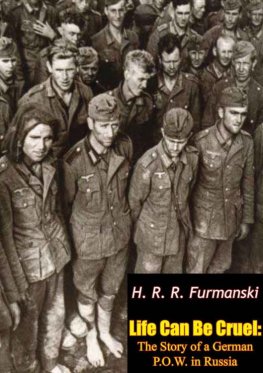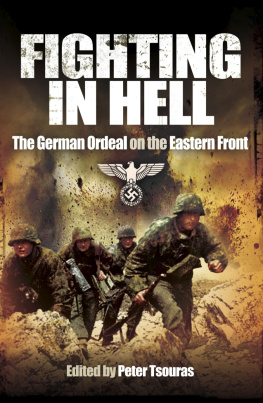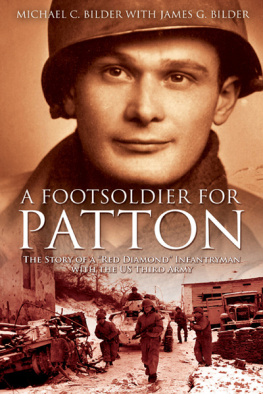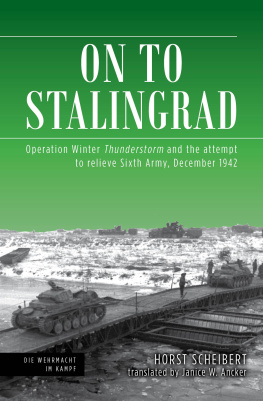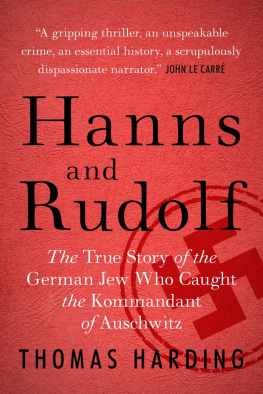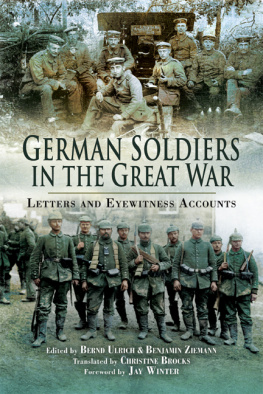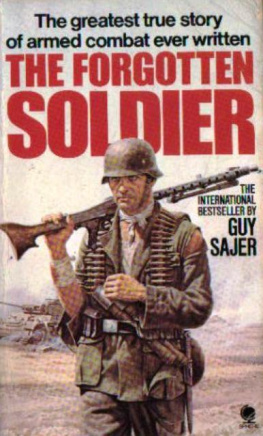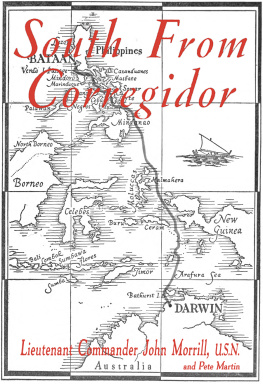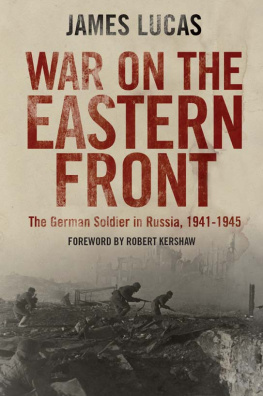H. Furmanski - Life Can Be Cruel: The Story of a German P.O.W. in Russia
Here you can read online H. Furmanski - Life Can Be Cruel: The Story of a German P.O.W. in Russia full text of the book (entire story) in english for free. Download pdf and epub, get meaning, cover and reviews about this ebook. year: 2016, publisher: Pickle Partners Publishing, genre: Non-fiction / History. Description of the work, (preface) as well as reviews are available. Best literature library LitArk.com created for fans of good reading and offers a wide selection of genres:
Romance novel
Science fiction
Adventure
Detective
Science
History
Home and family
Prose
Art
Politics
Computer
Non-fiction
Religion
Business
Children
Humor
Choose a favorite category and find really read worthwhile books. Enjoy immersion in the world of imagination, feel the emotions of the characters or learn something new for yourself, make an fascinating discovery.
- Book:Life Can Be Cruel: The Story of a German P.O.W. in Russia
- Author:
- Publisher:Pickle Partners Publishing
- Genre:
- Year:2016
- Rating:3 / 5
- Favourites:Add to favourites
- Your mark:
- 60
- 1
- 2
- 3
- 4
- 5
Life Can Be Cruel: The Story of a German P.O.W. in Russia: summary, description and annotation
We offer to read an annotation, description, summary or preface (depends on what the author of the book "Life Can Be Cruel: The Story of a German P.O.W. in Russia" wrote himself). If you haven't found the necessary information about the book — write in the comments, we will try to find it.
H. Furmanski: author's other books
Who wrote Life Can Be Cruel: The Story of a German P.O.W. in Russia? Find out the surname, the name of the author of the book and a list of all author's works by series.
Life Can Be Cruel: The Story of a German P.O.W. in Russia — read online for free the complete book (whole text) full work
Below is the text of the book, divided by pages. System saving the place of the last page read, allows you to conveniently read the book "Life Can Be Cruel: The Story of a German P.O.W. in Russia" online for free, without having to search again every time where you left off. Put a bookmark, and you can go to the page where you finished reading at any time.
Font size:
Interval:
Bookmark:
H. R. R. Furmanski
LIFE CAN BE CRUEL
First Edition
My thanks to Rebecca Bloomfield
for encouraging me
to write this book
I was born in a small town in East Prussia, on a bitter cold night in January. The year was 1913, one year before the outbreak of World War I. My parents were very happy and proud that their second child was a boy. At last, thought Papa, I will have a male heir who can carry on the business and keep alive the family tradition. In his mind he was already planning my future. With fatherly pride he bent to kiss my mother and thank her for giving him a son. It had been a long time between childrenthirteen yearsand although Papa loved my sister Frieda and gave her the best which he was able to provide, still, she was only a girl, and a girl did not share the pride of her fathers profession in those days, nor did she hold the promise of a new and more prosperous generation that would bear the family name. All of this was important to Papa, who was a proud, strong-willed man, a master pastry chef who took pride in his craft.
His mouth was a firm line separating a determined chin and a carefully trimmed black mustache. I cannot recall those set features ever changing, nor the mustache being any color but a shiny, bristly black, though I know that, as he grew older, his face became lined, and his hair turned gray.
I do not mean to imply that Papa was a vain man. No, he simply took a craftsmans pride in his work, and he found in the prospect of a son to follow him a new energy, a new incentiveand he worked doubly hard. His well-established pastry shop flourished and prospered under his constant supervision and his contagious, driving spirit.
No matter how loudly or how often the bell on the shop-door rang, Papas voice could be heard throughout the kitchen. No matter how thickly the dust of flour filled the air, Papas quick, deep eyes mirrored his moodan occasional displeasure or, more often, the deep pleasure experienced by a man who has given of his best and whose work has met with approval.
And so, with the birth of a son into the family, business seemed to thrive to an even greater extent. New customers flocked to the bakery, and soon the kitchens were expanded and modernized. The cash register played a merry tune, and life was full for my papa. And yet, it is not Papa whom I remember most clearly. When I think of the shop and the counter that sat spotlessly clean before the customers, and the wonderful smells that came from the lovely products of my fathers art, I see Mother. MotherI never called her Mama or Mummy or Ma. These words were just sounds to meempty terms of endearment that any child could push from between baby lips to call any woman who was kind to him or gave him pretty things. But Mother was more than a word or a woman who showed me great kindness: she wove her soul into mine with careful, firm stitches that formed patterns of goodness and love, comfort and security, understanding and peace. I cannot tell now where her soul ended and mine began.
Looking back in memory, I see her in the shop as a slender, blond woman with deep blue eyes. I remember the smile that seemed never to leave her lips, and the happy words that were always on her tongue as she waited on friends and strangers in the store. I remember how she would come to me in her free moments from the shop, wearing her apron, the warm smell of baked goods clinging to her person. And I remember how she prayed with me and for me, through all the busy days between shop and home, through all the painful days of childhood sickness and shattered dreams, through all the blackened days when war sounds drowned her words to my ears. At no time was I unaware of her presence.
My first year was therefore spent in a wonderfully peaceful and secure atmosphere. We had enough on which to live, enough room in which to be happy, and enough love shared among us to teach us to love life. Never were strong words or quarrels heard in our house, for Mother and Papa preserved the sanctity of their home, as though the home were an entity in itself, and yet deeply and profoundly a part of each of us.
Thenquite without warningeven I, in my baby mind, could sense that something was wrong, was missing from our home. Frieda was with me constantly, and I waited eagerly for her to come to me in the morning and take me shopping for groceries, or for a walk down by the river that ran past our house, or to the dry-goods store to buy material for clothes. I loved the bright patterns of the cheap cotton and would sit fascinated as I followed the crazy designs that ran up and down the bolts of cloth. Mother would come in for lunch, but she no longer spent so much time with us, and though her eyes seemed to be trying very hard to smile, they never quite succeeded in covering the look of weariness and concern in her face.
During the afternoons Id sit at the piano with Frieda and listen to her play, laughing at the silly little songs she made up for me and sitting solemnly silent as her fingers ran across the keys in a Bach sonata or a section of a Beethoven symphony. Mother would be there for supper too, and for a little play before bedtime. Then the lack became apparent to me, for while Mother and Frieda were always near me, their love with me always, Papa was gone. That was where the emptiness came from; thats what was missing. And suddenly I asked, Where is Papa? Why is his place empty at our supper table?
Mother told me calmly that Papa had to go to war with the other men, and that we must wait patiently until it was time for him to come home. No, she didnt know when that time would be, we must not doubt that he would come home, and in the meantime we must be good and wait for him. I felt a great hatred for this war, not because I knew what war was exactly or that it could prevent Papa from ever coming home: I hated it because war was a place or a thing or a person that kept my father from me and made Frieda solemn and Mother sad and tired whenever it was mentioned.
For four years I listened to the word and could pick out the letters in the print of the newspapersand I hated it more and more.
My mother worked hard to keep the kitchen in the bakeshop busy, the books balanced, and the building that housed our home exactly as it was beforebefore the war. She never complained, never whined, never let anyone know how she felt inside. At night, when we prayed togetherMother, Frieda, and Ishe would always thank God that we could share all the blessings that he had given us, humbly asking that her husband be returned safely to his family.
And it was in this manner that we lived through the days. Spring came late, that year of 1918: even the seasons seemed to be waiting for the war to end, as though the world wanted to wait for a peaceful atmosphere before exhibiting the beauty that can only be enjoyed in time of peace. The river that ran past our house was still frozen, and it looked as if it would never melt. Frieda warned me that the ice really wasnt as strong as it looked, but I told her not to be silly, that if I still had to bundle up in so many sweaters and mufflers then it certainly was cold enough to go sliding on the ice with the other children without fear of the ice melting.
If I fall through the ice, it will be because all this clothing has made me as heavy as the blacksmiths anvil, and that surely would fall through the ice, I laughingly chided, and shuffled out the door to join the others.
Darkness began to descend at its early winter hour. The older children reluctantly acknowledged the lighting of the streetlamps, called younger sisters, brothers, and neighbors children who were in their charge, leaving only a few of us behind. I hadnt noticed their departure, nor did I notice that the others were slowly leaving too. Frieda had learned a lovely new piece of music, and I was intent on fitting the rhythm of my slide dance to the new melody humming it over and over again. I glided back and forth and in patterns, listening to the sound of the slide and stopping when that sound seemed in discord with the melody that ran through my mind in pleasant repetition. It wasnt a dance, reallyjust an exercise, a game I played that gave me great pleasure and shut off the street and the houses and the shop and all sense of time and area. Taking a run on the trill and sliding until the melody ended, I thought: Ill wager I can slide all the way to the end of this theme if I get a good start. Start
Font size:
Interval:
Bookmark:
Similar books «Life Can Be Cruel: The Story of a German P.O.W. in Russia»
Look at similar books to Life Can Be Cruel: The Story of a German P.O.W. in Russia. We have selected literature similar in name and meaning in the hope of providing readers with more options to find new, interesting, not yet read works.
Discussion, reviews of the book Life Can Be Cruel: The Story of a German P.O.W. in Russia and just readers' own opinions. Leave your comments, write what you think about the work, its meaning or the main characters. Specify what exactly you liked and what you didn't like, and why you think so.

